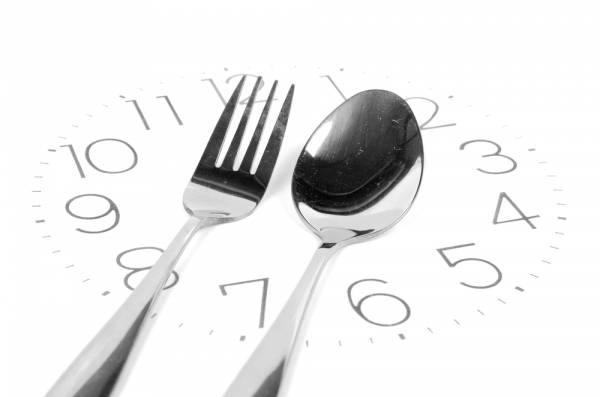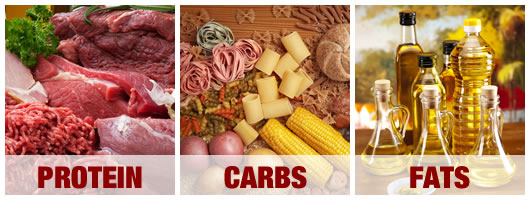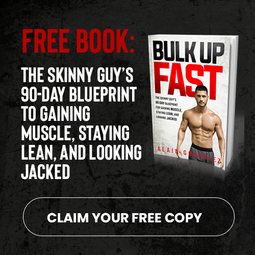
It’s no secret that burning fat can be made significantly easier with intermittent fasting by restricting caloric intake.
It’s also no surprise as to how popular it has become amongst the fitness community – the benefits are, dare I say, wondrous.
In a previous article, I went over the details of IF and broke down the science behind this “magical” eating pattern. (If you’re not sure exactly how IF works, then read this.)
But I failed to answer one questions…
Can I build muscle with I.F.?
In order to build muscle, regardless of diet type or training style, three things need to happen. First, we must provide our body with sufficient resources for recovery and the repair of new muscle tissue. Next, we must ensure that we are in a positive nitrogen balance and are synthesizing more protein than we are breaking down. Lastly, we’ve got to provide the muscle enough stress to elicit hypertrophy.
So the question then becomes, can we achieve these three things while eating in a pattern where we are spending more time in a fasted state than in a fed state?
Let’s find out…
In order to provide our body the necessary resources for maximum recovery and repair of muscle tissue, we must consume more energy than we are expending. Because energy balance has nothing to do with whether we are consume 1 meal or 8 meals and everything to do with how many total calories we eat, this, although more difficult for some, is certainly doable.
If we want to ensure we’re in a positive nitrogen balance, we must simply consume enough protein, daily. If we can manage to consume enough calories during our “feeding window”, then I see no reason why enough of those calories can’t come from protein.
Progressive overload is by far the main mechanism by which we stimulate new muscle growth. This is done by increasing the stress placed on the muscle through added volume. There are a number of ways that we can achieve progressive overload, but the main 2 are (1) adding weight to the bar without sacrificing sets and reps or (2) adding reps without sacrificing weight or sets. And because we are providing our body sufficient energy to recover and rebuild, there is no reason we would have issues increasing our performance in the gym.
With that in mind, I think it is safe to say that building muscle using intermittent fasting can be done just as easily as someone who does not restrict their intake at any point during the day.
The question now becomes, can someone on IF gain muscle faster than someone using a traditional approach?
[Tweet "Can someone on IF gain muscle faster than someone using a traditional approach?"]
Let’s take a look.
Benefits of Intermittent Fasting for Muscle Growth

As I mentioned in The Ultimate Guide to Intermittent Fasting for Fat Loss, IF does in fact provide a great deal of benefits. It’s been shown to have anti-aging affects, increase brain health, and has been shown to, potentially, reduce the risk of cancer.
From an overall health perspective, I am sure I’ve got your attention. But you’re here because you want to build muscle mass, so let’s talk about that.
1. Improved Insulin Sensitivity when Training Fasted
This is something we have solid research on.
Insulin’s main role is to shuttle nutrients into cells; however, when insulin is elevated (during a fed state) it reduces the breakdown of fatty acids - making it harder to burn dietary fat or body fat. So, essentially, if you’re training fasted, you’re likely to burn more fat during your session. For someone who is eating in a caloric surplus, this may mean less fat gain during your “bulk”.
A great benefit, theoretically speaking, but let’s look at it from a practical standpoint. Training fasted, for most people, will inhibit performance; performance being our main training goal, that may not be a great tradeoff. Given the choice between burning more fat and performing better, always take the latter when the goal is to build muscle.
2. Growth Hormone Production
Increases in growth hormone during bouts of fasting are one of the main selling points you’ll hear about from IF advocates. To be fair, there is a good amount of research showing increases of up to 5x – pretty drastic if you ask most people.
But here is the bit of information they’re not telling you. The evidence is pretty clear that, even when GH is injected in order to raise resting levels, it does very little (if anything at all) for muscle or strength gains. And if we can expect little results from super-physiological amounts of GH, then surely, acute increases in GH will be insignificant.
So, yes, certain eating patterns or exercise rest intervals may induce growth hormone production, but never enough to produce physiological changes in muscle mass.
[Tweet "Intermittent Fasting may induce GH, but not enough to produce changes in muscle mass."]
3. Increased Testosterone Levels
A study done by the Journal of Clinical Endocrinology and Metabolism showed that Intermittent Fasting decreases leptin levels. This decrease in leptin causes an immediate burst of testosterone - thus one could argue that IF increases testosterone levels.
First, we know that a male who produces anywhere between 300-1000ng/dl is considered to be in the normal range. It’s also been shown that, despite being on either the lower or higher end of the range, there is no difference in the rate at which we build muscle. In fact, it wasn’t until testosterone levels surpassed the normal range by 20-30% that the rate of muscle growth was increased. Unfortunately, those super-physiological test levels can’t be achieved naturally.
4. Increased Flexibility in Your Diet
Take two identical males – both on 3000kcal diets. The first guy is following a traditional approach to eating while the other is following IF. Guy A consumes his 3000kcal in 6 meals while Guy B consumes his in just 2. I think it’s safe to say that Guy B is going to have a lot more options when choosing foods to fit into his intake.
5. Prolonged Bulking
Let’s face it, once we’ve bulked passed a certain point, we become reckless with our diets. This can easily lead into faster fat gain and, ultimately, decrease the life of our bulking phase. If you’ve got an appetite, restricting your calories in order to minimize fat gain while aiming to put size on can get difficult. If that’s you, then IF can be great way to avoid overeating when purposely overfeeding to gain mass.
My recommendation is simple: Don’t follow IF solely based on the hormonal response - it’s insignificant. If you’re intrigued by the ability to gain less fat while overfeeding if you follow IF, then try it for a few weeks, see how your body acclimates to training on an empty stomach, then decide if it’s sustainable. If you can manage to perform and push yourself in the gym, then go for it. If you can’t, ditch it – but be sure to give it a fair shot before you decide.
Cons of Intermittent Fasting for Muscle Growth
Truth is, there is nothing inherently bad about Intermittent Fasting; however, circumstantially speaking, there may be a few downfalls.
1. Limited Protein Synthesis
In order to elevate muscle protein synthesis, maximally, we must consume 3-4 servings of protein, daily, with about 3 hours in between servings. If your feeding window is too small, stimulating protein synthesis through protein intake, maximally, may get a bit challenging.
2. Less Time to Eat
If you’re someone who finds it difficult to consume adequate calories, consistently, decreasing your feeding window may be the worst thing you can do. If your goal is to consume 3000kcal per day and you’re struggling to meet that intake requirement in 13 hours, cutting that down to 8 hours is unlikely to help you.
In my opinion, if you’re a hardgainer, stay as far as you can from Intermittent Fasting.
3. Long Mornings or Uneventful Nights
If you’re a “breakfast person”, then chances are, you’re going to have a hard time fasting in the morning. And although this is something you can get used to, over time, it’s going to suck in the beginning. On the other hand, if you decide to fast in the evening instead, you can forget about dinner dates or your occasional beer with buddies.
Again, these cons are circumstantial and certainly not going to affect everyone; however, I do believe they’re worth considering when debating on whether or not IF is for you.
Do I have to track calories on IF?
If your goal is to build muscle mass, then you’ve got to be consuming a surplus of calories. For the overwhelming majority of people, however, guesstimating caloric intake causes too much inconsistency in our weekly intake. Falling short a couple of days, each week, can add up to a much longer journey.
So do you have to track calories? No. You don’t. But if you’re looking to get from point A to point B, faster, then absolutely…you should certainly track your calories.
And if you want to ensure you’re gaining more muscle and less fat in order to prolong your mass building phase, getting those calories from the right macronutrients is critical.

Protein
Building muscle mass requires an adequate protein intake. Failing to consume enough protein will result in a negative nitrogen balance – we’ll end up breaking down more protein than we are consuming and, ultimately, end up inhibiting muscle growth. The science is pretty clear that we won’t need more than about 0.8g per pound of bodyweight to build muscle while overfeeding; however, that study also suggests that a bit more protein may be beneficial depending on certain factors. With that in mind, I recommend consuming a bit more to be on the safe side.
- Consume 0.8-1g per pound of bodyweight in protein, daily.
Fats
The benefits of a healthy fat intake are seemingly endless, but in terms of building muscle, a few of those benefits really stick out.
For instance: a healthy fat intake has been associated with faster muscle growth, increases in anabolic hormone levels, and reduced body fat mass.
I think it’s safe to say that consuming an adequate amount of fats is critical for building muscle mass.
- Consume 0.3-0.4g per pound of bodyweight in fat intake, daily.
Carbohydrates
When carbohydrates are consumed, they’re broken down into glycogen in the body. Glycogen is the body’s main energy source for intense physical activity. Full glycogen stores equate to better gym performance, and performing better in the gym is the fastest way to induce muscular hypertrophy.
- Consume 1.5-3 grams per pound of bodyweight in carbs, daily.
Who should use I.F.?
Intermittent Fasting is a viable diet approach for building muscle mass, no doubt about it. For some, the benefits outweigh the potential negatives – to others, it may be the other way around. In the end, the most sustainable diet approach prevails.
In my opinion, limiting calories while in a growth phase, especially for individuals who gain weight relatively easily, is definitely a helpful tool for prolonging the time you can spend overfeeding. Pair that up with fastest training (assuming performance is not negatively impacted) and you’ve got a recipe for a long, lean bulk.
On the other hand, if getting in enough calories is already a challenge, limiting the amount of time you’re “allowed” to eat may do more bad than good. And let’s face it, most people are going to perform better in the gym while in a fed state.
Conclusion
IF is a tool – nothing more and nothing less. Like any other diet approach, it has its pros and it has its cons. If you wish to give it a fair shot, follow IF for 4-6 weeks before determining whether or not it’s for you.
If you’d rather feast at the dinner table and eat less frequently, then IF can be enjoyable. If your preference is smaller, more frequent meals, then perhaps not.
But remember, whether you’re intermittent fasting or just eating regularly throughout the day, if you want to build muscle, you’ve got to consume enough calories, get in adequate protein, and continue to add stress to the muscle through progressive overload.
Did you find this article helpful? Make sure to “like” it up and share it with your friends on social media!
Do you have any questions regarding intermittent fasting for muscle growth? Leave them in the comment section below.


